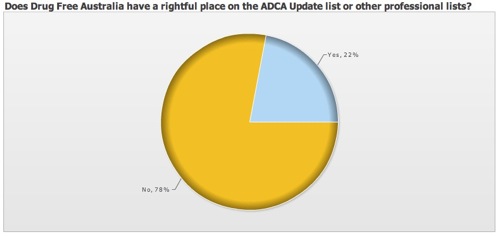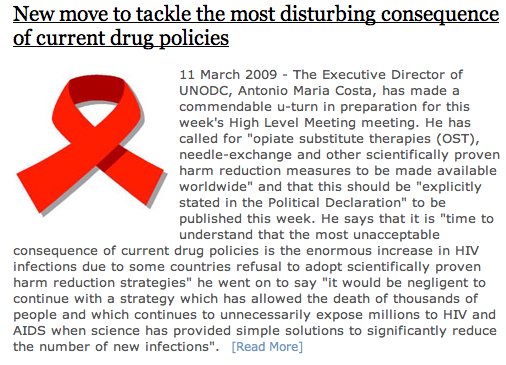After a little over a year of running a public campaign around binge drinking, and with the ‘Alco Pops’ legislation still bogged down in the Senate, Health Minister Nicola Roxon has announced the upcoming illicits campaign:
THE HON NICOLA ROXON MP – MINISTER FOR HEALTH AND AGEING
MEDIA RELEASE – 19 APRIL 2009
NATIONAL CAMPAIGN TARGETS ILLICIT DRUGS
Hard-hitting ads targeting ice, ecstasy and marijuana will be rolled out from today, as part of an $18 million national campaign.
The ads confront young people with the dangers posed by these harmful drugs, and will include print, television, cinema, outdoor advertising and internet ads.
The risks associated with these drugs include:
• Ice users are at risk of drug-induced psychosis which may lead to aggressive and violent behaviour. They also suffer physical problems including damaged teeth, gums and skin lesions, and are at greater risk of stroke, panic attacks, anxiety, and severe depression.
• Ecstasy users are at risk of chronic sleep problems, cracked teeth through grinding, high blood pressure, dehydration, anxiety, nervousness, hallucinations, severe depression, thermal meltdown and death from heart failure.
• Marijuana users are at risk of psychosis (particularly the earlier marijuana use is initiated), increased risk of depression, risky sexual behaviours and chronic respiratory conditions.
The rates of drug use in society are still too high. In 2007, of Australians aged over 14 years, 38.1 per cent had used an illicit drug and one in three had used marijuana. Of Australians aged 20-29 years, 23.9 per cent reported using ecstasy and 16 per cent had used methamphetamines such as ice at least once in their lifetime.
This campaign particularly targets young methamphetamine users by portraying in stark and confronting terms the real harms and risks associated with drugs like ice and ecstasy.
The ads use slightly revised versions of earlier ads, in order to reinforce the message that these drugs are dangerous.
The television commercial Don’t Let Ice Destroy You, was produced under the guidance of expert clinicians, and law enforcement officers were also consulted.
The campaign also directs drug users to important points of support, counselling and treatment services that are available in communities throughout the country.
This campaign is one part of more than $800 million the Government is investing over five years in tackling the scourge of drug abuse.
Further information about the Government’s National Drugs Campaign is available from www.australia.gov.au/drugs or by calling the free national hotline 1800 250 015
Comprehensive strategies can be worthy, but am I alone in worrying whether a broad, mainstream campaign is the best way to target illicit drug users?


